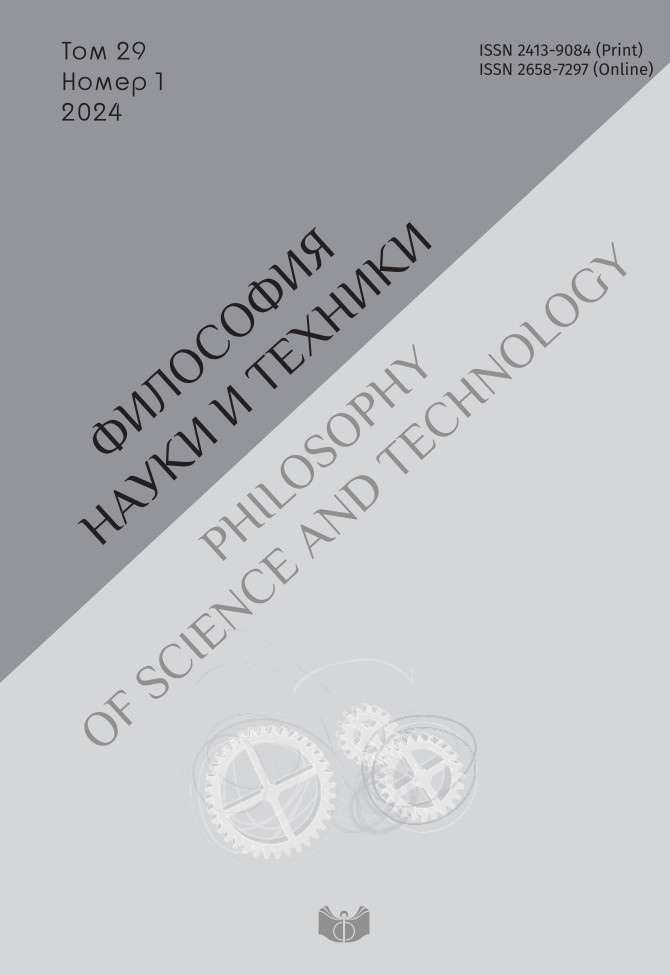Consciousness as an antinomy (antinomy of the concept of consciousness and the philosophy of artificial intelligence)
DOI:
https://doi.org/10.21146/2413-9084-2024-29-1-20-33Keywords:
consciousness, artificial intelligence, philosophical foundations, meaning-setting, analogizing apperception, thought experiment, Turing test, antinomyAbstract
he paper shows that the reasons for the contradictions existing in the philosophy of artificial intelligence (AI) are rooted in the lack of general philosophical foundations reflection. Among such foundations are the concepts of consciousness and “other consciousness”. Various approaches to these problems have been analyzed. A logical and methodological reconstruction of the of different approaches to the problem controversy of AI and consciousness is investigated. The critique of thought experiments used in the philosophy of consciousness and AI is given. A significant methodological difference between such experiments and Galileo’s experiment is demonstrated. Galileo’s experiment is a classic case of a successful thought experiment that gave an objective result. In the framework of conceptualizing and correlating the concepts of consciousness, “I” and the Other epistemological gaps inevitably emerge caused by qualitative differences in phenomenological manifestations and ways of conceptualizing the spheres of reality that need to be correlated with each other. The paper shows that an epistemological gap is inevitably present between the external (including verbal) behavior of the Other and its interpretation by the observer as manifestations of certain internal contents of the consciousness of the Other. Moreover, phenomenological manifestations for a person of his own consciousness and manifestations of the consciousness of the Other (including a verbal description of contents of consciousness) are not theoretically correlated. The antinomy of the concept of consciousness is shown as impossibility
of concluding its presence or absence in the system (“I”, Other, AI) when using purely philosophical (theoretical) methods of reasoning. The concept of consciousness as well as ideas about the consciousness of the Other, however, are necessary for practical activity and communication, that’s why a person uses practical ways of conceptualizing consciousness including intuitive perception, empathy, attribution, etc.











